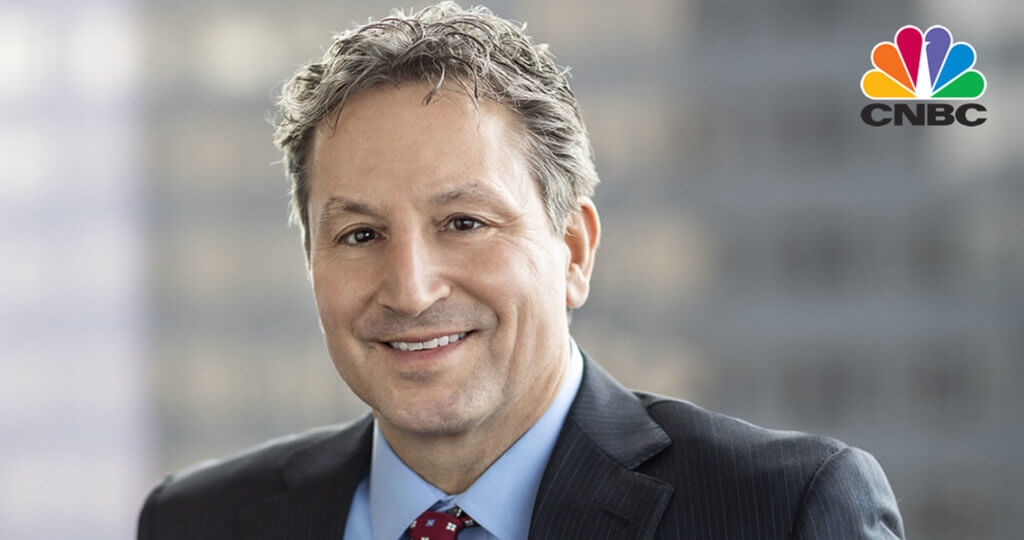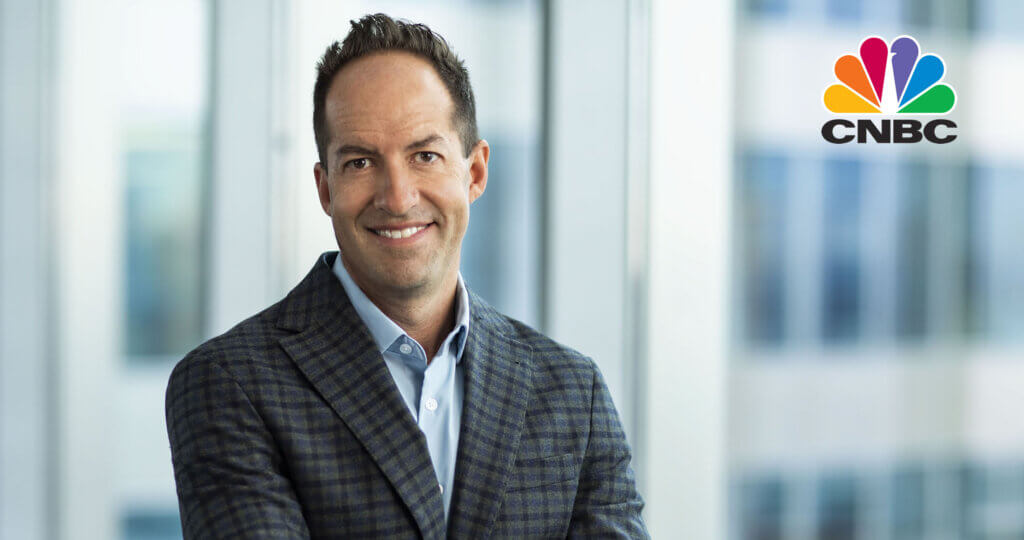Oakmark Global Fund – Investor Class
Average Annual Total Returns 06/30/18
Since Inception 08/04/99 10.32%
10-year 7.42%
5-year 8.63%
1-year 9.99%
3-month -0.31%
Gross Expense Ratio as of 09/30/17 was 1.21%
Net Expense Ratio as of 09/30/17 was 1.15%
Past performance is no guarantee of future results. The performance data quoted represents past performance. Current performance may be lower or higher than the performance data quoted. The investment return and principal value vary so that an investor’s shares when redeemed may be worth more or less than the original cost. To obtain the most recent month-end performance data, view it here.
Private Versus Public Equity
A recent Wall Street Journal article discussed the current strength of the private equity market where secondhand stakes in private equity funds are being sold for 10-35% premiums (as opposed to the more typical discount) to most recent portfolio valuations. This had us thinking, wouldn’t it be nice…
As you know, our process applies a private equity approach to public markets – like private equity, we value businesses based on our estimate of their intrinsic value, buy them at a substantial discount and then later sell when they are fully valued. Unlike private equity, however, we don’t mark our portfolio companies based on where peers trade or our estimate of the long-term fundamental outlook of the business – we mark according to current public stock prices no matter how different than an arguably better representation of fair value. (If we did, the value of the Fund would be far higher than the current stock prices dictate.) Furthermore, we give daily liquidity to our investors and we certainly never demand a premium to invest in our portfolio. So for instance, if an investor were to buy a portfolio of publicly traded businesses valued at 60 cents on the dollar and that portfolio were to get marketed to fair value and sold for an additional 20% premium, the return would be an instantaneous 100%. Wouldn’t it be nice, indeed!
Performance
The Oakmark Global Fund’s three-month return declined 0.3%, compared to a 1.7% return for the MSCI World Index during the period and the Lipper Global Fund Index’s gain of 0.4%. Calendar year to date, the Fund returned -2.9%, versus a 0.4% return for the MSCI World Index and -0.7% for the Lipper Global Fund Index. Since inception, the Fund has achieved a compound annual return of 10.3% vs. 4.8% for the MSCI World Index and 5.5% for the Lipper Global Fund Index.
Holdings in the U.S., Mexico and China contributed the most to the Fund’s return in the quarter, while holdings in Germany, the U.K. and Switzerland were the largest detractors. The five largest individual contributors during the quarter were Tenet Healthcare (+38%), Mastercard (+12%), Grupo Televisa (+19%), General Motors (+9%) and Alphabet (+8%). The five largest detractors were Daimler (-21%), CNH Industrial (-13%), TE Connectivity (-9%), Arconic (-26%) and Credit Suisse Group (-8%).
Calendar year to date, holdings in the U.S., China and Mexico contributed the most to the Fund’s return, while holdings in the U.K., Germany and Switzerland were the largest detractors. The leading contributors were Tenet Healthcare (+121%), Mastercard (+30%), Interpublic Group (+18%), National Oilwell Varco (+21%) and Under Armour (+58%). The leading detractors were Daimler (-21%), CNH Industrial (-20%), Arconic (-37%), Credit Suisse (-14%) and Liberty Global, Class C (-21%).
Portfolio Activity
We initiated two entirely new positions during the quarter—Southwest Airlines and Reckitt Benckiser—and eliminated only one holding, Philips, due to its price. We also added Liberty Broadband and sold our high-cost Charter shares to generate a tax loss. This enabled us to maintain exposure to Charter as Liberty Broadband has the preponderance of its value in Charter shares.
Southwest Airlines Co. (LUV)
LUV is the largest and most profitable airline in the U.S. with 24% total domestic market share and 66% share in its top 100 city pairs. LUV has been profitable for 45 consecutive years, despite competing in an industry that has been littered with bankruptcies. The company has been on Fortune’s list of “World’s Most Admired Companies” every year for nearly a quarter of a century. LUV’s brand recognition and strong customer loyalty stem from its outstanding service, efficient operations and refusal to nickel-and-dime on fees. The company’s above-average operating margins are enabled by a lower cost model compared to network carriers. LUV has a strong balance sheet and returns most of its free cash flow to shareholders through significant share repurchases and dividends. Despite these positive characteristics, we were able to purchase the shares at only a mid-single digit multiple of normal operating income due to short-term pressure from the run-up in fuel prices and the suspension of marketing following the recent passenger fatality.
Reckitt Benckiser (RB)
RB is a leading global consumer products company with $15 billion of sales in 2017 and strong brands in health, infant nutrition, home care and hygiene. RB has successfully expanded its presence in high-value health products categories and increased its operating profitability via premiumization and excellent cost discipline. RB’s historical best-in-class performance can in part be attributed to its significant insider ownership: the CEO and CFO are required to own shares worth more than 40 times and 20 times their salaries, respectively. RB’s share price recently declined due to transitory factors as well as weakness in its relatively small home care division. Management is restructuring the home care division to provide greater accountability and may sell the division to an owner who can extract greater operational synergies. Moreover, many of the transitory factors affecting the share price are expected to disappear in fiscal year 2019. Therefore, in our view, the current share price does not reflect the company’s strong underlying value or its potential for increased profits, so we initiated a position in RB during the past quarter.
We thank you for being our partners in the Oakmark Global Fund, and, as always, we invite your comments and questions.
The securities mentioned above comprise the following percentages of the Oakmark Global Fund’s total net assets as of 06/30/18: Tenet Healthcare Corp. 2.3%, Mastercard, Inc., Class A 4.1%, Grupo Televisa SAB 2.4%, General Motors Co. 4.2%, Alphabet, Inc., Class C 4.8%, Daimler AG 4.4%, CNH Industrial N.V. 3.5%, TE Connectivity, Ltd. 4.1%, Arconic, Inc. 1.6%, Credit Suisse Group AG 3.5%, The Interpublic Group of Cos., Inc. 2.5%, National Oilwell Varco, Inc. 2.1%, Under Armour, Inc., Class C 0.9%, Liberty Global PLC, Class C 1.9%, Liberty Global PLC, Class A 1.2%, Southwest Airlines Co. 0.5%, Reckitt Benckiser Group PLC 0.4%, Koninklijke Philips N.V. 0%, Liberty Broadband Corporation, Class C 1.0% and Charter Communications, Inc., Class A 0.8%. Portfolio holdings are subject to change without notice and are not intended as recommendations of individual stocks.
Access the full list of holdings for the Oakmark Global Fund as of the most recent quarter-end.
The net expense ratio reflects a contractual advisory fee waiver agreement through January 28, 2019.
Davies, Paul J. “Private Equity: So Hot Even Second-Hand Funds Can Sell at a Premium.” The Wall Street Journal. June 25, 2018. Accessed July 03, 2018. https://www.wsj.com/articles/private-equity-so-hot-even-second-hand-funds-can-sell-at-a-premium-1529924400.
The MSCI World Index (Net) is a free float-adjusted, market capitalization-weighted index that is designed to measure the global equity market performance of developed markets. The index covers approximately 85% of the free float-adjusted market capitalization in each country. This benchmark calculates reinvested dividends net of withholding taxes. This index is unmanaged and investors cannot invest directly in this index.
The Lipper Global Fund Index measures the equal-weighted performance of the 30 largest global equity funds as defined by Lipper. This index is unmanaged and investors cannot invest directly in this index.
The Fund’s portfolio tends to be invested in a relatively small number of stocks. As a result, the appreciation or depreciation of any one security held by the Fund will have a greater impact on the Fund’s net asset value than it would if the Fund invested in a larger number of securities. Although that strategy has the potential to generate attractive returns over time, it also increases the Fund’s volatility.
Investing in foreign securities presents risks that in some ways may be greater than in U.S. investments. Those risks include: currency fluctuation; different regulation, accounting standards, trading practices and levels of available information; generally higher transaction costs; and political risks.
The discussion of the Fund’s investments and investment strategy (including current investment themes, the portfolio managers’ research and investment process, and portfolio characteristics) represents the Fund’s investments and the views of the portfolio managers and Harris Associates L.P., the Fund’s investment adviser, at the time of this letter, and are subject to change without notice.
All information provided is as of 06/30/2018 unless otherwise specified.









